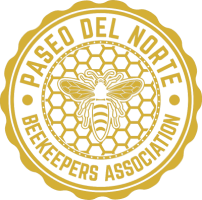Sources of Honey Bees & Queens
When starting or expanding a beekeeping operation, sourcing healthy bees and queens is critical. Finding the right supplier can ensure that your hive gets off to a strong start and remains productive throughout the season. Whether you're a beginner or an experienced beekeeper, understanding the different sources of honey bees and queens can make all the difference.
Ways to Acquire Bees
There are several options for acquiring bees, each with its own benefits and considerations. Here are the most common methods:
Packages of Bees
A package of bees usually includes a few pounds of worker bees, a queen in a separate cage, and sometimes a small amount of food. Packages are one of the most popular ways to start a new hive because they are widely available and easy to install into most hive types.
- Pros: Easy to handle and install; can be shipped to many locations.
- Cons: Takes time for the bees to adapt to the new queen; potential for higher initial loss due to transportation stress.
Packages are generally sold in the spring, so it’s important to order them well in advance, typically in the winter months, to ensure availability when it’s time to start your hive.
Nucleus Colonies (NUCs)
A NUC (short for "nucleus colony") is essentially a small hive that contains a few frames of brood (baby bees), honey, pollen, worker bees, and an already laying queen. NUCs offer a more established start than packages, as the colony already has a functioning structure and a laying queen.
- Pros: Easier start for the beekeeper; faster colony development; queen is already accepted by the workers.
- Cons: Usually more expensive than packages; may require local pick-up; limited availability.
NUCs are an excellent choice for beginners and those looking for a quicker buildup of their hive population.
Established Colonies
Purchasing an established colony means acquiring a full hive, often with drawn comb, honey, brood, and a well-established queen. This option provides an immediate, productive hive but requires more upfront cost and care during transport.
- Pros: Instant colony; no waiting for population buildup; immediate honey production.
- Cons: Expensive; risk of inheriting pests, diseases, or poor genetics; often requires local pickup.
Established colonies are ideal for beekeepers who want to increase their hive count quickly and are prepared for the challenges of managing a full colony.
Capturing Swarms
Swarms are natural clusters of bees that have left an existing colony to establish a new one. Capturing a swarm is an exciting and cost-effective way to start a hive, though it requires quick action and some experience in handling bees.
- Pros: Free or low cost; can help rescue displaced bees; often results in a strong, healthy colony.
- Cons: Requires quick response and skill; no guarantee of success; bees may abscond (leave) after capture.
Swarms can be found in spring and early summer, and reaching out to local beekeeping associations is a great way to get involved in swarm collection.
Finding & Purchasing Queens
The queen bee is the heart of the hive. Her genetics, health, and temperament directly affect the productivity and behavior of the colony. Here are some ways to source a quality queen:
Queen Breeders
Professional queen breeders specialize in producing and selling queens with desirable traits such as gentle behavior, good honey production, and disease resistance. When ordering from a breeder, you can choose queens of various breeds (Italian, Carniolan, Buckfast, etc.) depending on your preference and local climate.
- Pros: High-quality queens; diverse breed options; genetic traits tailored to your needs.
- Cons: Costly; requires careful timing to introduce to your hive.
Ordering a queen from a breeder is ideal for re-queening existing hives or replacing a lost queen in an emergency.
Local Beekeepers
Many local beekeepers and associations breed and sell queens to the community. This option allows you to purchase queens that are already acclimatized to your area, making for a smoother transition and better hive health.
- Pros: Queens are locally adapted; quick access; opportunity to support local beekeepers.
- Cons: Limited availability; potential lack of specialized breeding traits.
Building a relationship with local beekeepers or joining an association can help you find quality queens quickly when needed.
Splitting Colonies & Raising Your Own Queens
Experienced beekeepers can split existing colonies and raise their own queens through queen rearing methods. This method requires careful planning, skill, and the right conditions but allows you to create new hives with queens from your own bees.
- Pros: Cost-effective; control over hive genetics; ability to expand your apiary.
- Cons: Requires knowledge and experience; risk of unsuccessful queen rearing.
Raising your own queens is a rewarding process that allows you to take control of your beekeeping and build a sustainable apiary.
Trusted Vendors & Resources
The Paseo del Norte Beekeepers Association maintains a list of reliable vendors for purchasing NUCs, packages, and queens, both locally and nationally. This vetted list can help ensure that you receive healthy, high-quality bees for your apiary.
Additionally, online resources like Google Maps can help you find honey bee breeders and suppliers across the country. Check out the Honey Bee Breeders Map for more options.
Tips for Sourcing Bees & Queens
- Order Early: Bee suppliers often sell out in advance, so place your orders in winter or early spring to ensure availability.
- Inspect Your Bees: Always inspect bees upon arrival for signs of health, including good queen behavior, brood patterns, and absence of pests or diseases.
- Start with Two Colonies: Many experienced beekeepers recommend starting with at least two colonies, as this allows you to share resources and troubleshoot issues more effectively.
With proper sourcing, you'll be on your way to a thriving apiary. Remember to connect with local beekeeping associations and mentors to support you in your journey. Happy beekeeping!

